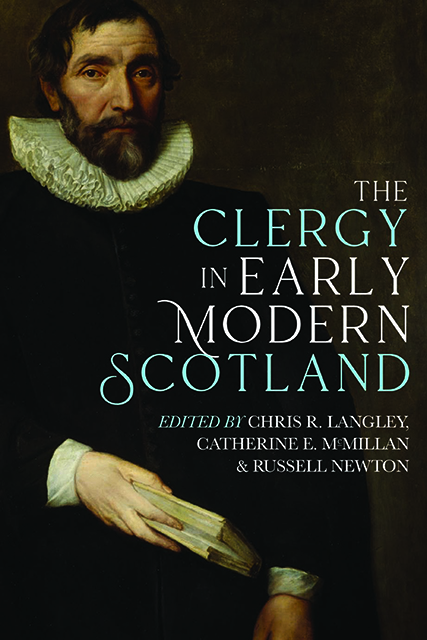8 - Clerical Culture and Island Logic in Early Modern Orkney
Published online by Cambridge University Press: 14 January 2023
Summary
The difficulties of creating a functioning and effective Protestant ministry from the broken ruins of the late medieval ecclesiastical structure were in many respects similar throughout early modern Scotland. But a remarkably distinctive set of challenges was encountered across the seventy-odd islands (a third or so inhabited) of the Orkney archipelago, where the parish system mapped only imperfectly onto patterns of island settlement and identity and where a unique set of cultural, linguistic, and topographic circumstances framed the relationships among ministers themselves and between ministers and lay congregations. This chapter aims to produce a preliminary survey of the ministry in post-Reformation Orkney (focusing especially on the period before 1700), while also asking questions about how particular patterns of clerical culture and outlook may have taken shape in one of the least discussed parts of the Reformed Kirk and how lay people may have responded to that culture as it formed.
The historiography of the Reformation in Scotland has in recent decades moved helpfully away from older assumptions about a unified ‘Scottish’ experience to show greater sensitivity to variegated regional and local patterns in the implementation of religious change. Islands, however, in both practical and conceptual ways, constitute a very particular type of locality. They have not featured much, if at all, as an analytical category in the historiography of the British and Irish Reformations, and remarkably little work has been undertaken on individual islands, and island groups, within the North Atlantic archipelago – honourable exceptions are Darryl Ogier’s study of religion in Guernsey and a seminal essay by Jane Dawson on the western Highlands and islands. As to Orkney itself, there is not much modern scholarship beyond Gordon Donaldson’s article of 1959 on ‘Bishop Adam Bothwell and the Reformation in Orkney’: a short study which, as the title suggests, adopts an institutional and chronologically restricted definition of what the Reformation actually was. The ‘northern isles’ usually get little more than a footnote in general accounts of Reformation and Revolution in Scotland, while early modern religion has not tended to be much of a concern for local and amateur historians of Orkney itself.
- Type
- Chapter
- Information
- The Clergy in Early Modern Scotland , pp. 151 - 170Publisher: Boydell & BrewerPrint publication year: 2021



